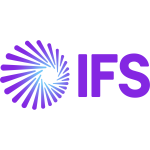What is our primary use case?
I have used Salesforce Service Cloud in a couple of projects. In our company, I have used the solution for one client, a medication company based in the US.
In the aforementioned project, different cases were arriving, including Email-to-Case and Web-to-Case, which were captured using Salesforce Service Cloud. Later on, Omni-Channel was used to assign cases to varying queues or users. Following the aforementioned step, the cases will be allotted to entitlements and milestones. I also have knowledge regarding the work orders and all the basic objects of Salesforce Service Cloud like account contact.
What is most valuable?
The application of the solution depends upon the customer requirements in our company. Salesforce Service Cloud is primarily used to setup the sandbox. At our company, I am a developer, and initially, a sandbox is provided to us. Then, utilizing the sandbox, packages need to be installed, user setup must be completed, and configurations and customizations must be made using Flows and Process Builders.
What needs improvement?
The governor limits are a troubling feature of Salesforce. At our company, we have limited the set of governor limits because it is cloud-based and has a multi-tenant architecture. In governor limits, wherever the codes are used, a query is written, or Asynchronous Apex is used, a set of limitations arises from Salesforce.
For instance, let's consider a huge dataset involving more than 100,000 records. If an operation is performed on the aforementioned record, we need to always abide by the best practices so that failure doesn't occur.
For how long have I used the solution?
I have been using Salesforce Service Cloud for three years.
Buyer's Guide
Salesforce Service Cloud
January 2026
Learn what your peers think about Salesforce Service Cloud. Get advice and tips from experienced pros sharing their opinions. Updated: January 2026.
882,160 professionals have used our research since 2012.
What do I think about the stability of the solution?
According to my experience in production with Salesforce Service Cloud, there are minimal chances of system failures. When the vendor implements enhancements, improvements or any bug fixes, in such cases all users are notified beforehand through an email or SMS. So whenever there are chances of the server going down, the vendor of Salesforce Service Cloud conveys it and I haven't witnessed any sudden slowdown in the solution.
What do I think about the scalability of the solution?
Scalability should be managed using the best practices or guidelines of Salesforce whenever a professional is working with any cloud environment with a multi-tenant architecture.
The out-of-the-box and other automation features of Salesforce Service Cloud should be leveraged in majority of cases for having an easier and faster access to data which contributes to scalability. Suppose there are 10,000 users, the performance for all the user-ends can be checked using the Salesforce environment to determine the scalability percentage and debugging tasks can also be implemented.
How are customer service and support?
Sometimes the customer support is not satisfactory. If you are dealing with production using the tool and a ticket is raised by you addressing any issues, a response is expected within a couple of days. But if a professional is facing issues on the sandbox end with a Dev copy, full copy, or partial copy, it can take an entire week or a couple of weeks altogether to get a response. I would rate the customer support as seven out of ten.
How would you rate customer service and support?
How was the initial setup?
I don't think the solution offers an easy setup. The setup complexity depends upon the organization for which it's being implemented. It needs to be checked if a customer is using a CI/CD pipeline involving continuous integration and deployment. I prefer using a couple of tools like GitHub, Bitbucket, and Bamboo, which are generally used by any large organization.
In Salesforce, in our company, we have changed what comes out of the box. Thus, deploying Salesforce Service Cloud with Change Sets is quite easy. A drawback of Change Set is that deployments are limited; therefore, in our organization, the DevOps of CI/CD pipeline is used.
One of the pipeline setup for the solution using GitHub took me around four to six weeks. The number of deployment professionals required depends on the size of the project, number of users and detailed client requirements.
For instance, if an agile model is being followed and there are four requirements in a single sprint, deployment will be quite easy in that case. But if the deployment is carried out on a quarterly or half-yearly basis, there will be a huge set of components that need to be deployed for which a dedicated DevOps team will be required and a single professional won't be able to carry out the deployment for Salesforce Service Cloud.
Maintenance of the solution is easier than development or deployment. When a customer of our organization reaches out to me regarding some bugs, log-in issues, or any other problem, maintenance for all such issues is not easy.
What was our ROI?
The Salesforce Service Cloud in our organization has helped save time.
What's my experience with pricing, setup cost, and licensing?
The price of the solution depends on how many users need access to it. For instance, if you are availing the license for a hundred users, the price can be around $49/month for the product.
What other advice do I have?
Automation tools like workflows and Process Builders were previously present in Salesforce Service Cloud, which we used in our company. But since Jan'2024, Salesforce has not provided the aforementioned automation tools, and instead, they have transferred everything within the Flows. In the solution, Flows are powerful tools which function as a combination of workflows and Process Builders.
As per the industry best practices, professionals should always try to utilize automation tools from Salesforce Service Cloud instead of using coding and writing triggers. Once the coding path is used instead of leveraging automation tools, the professional needs to handle all the governor limits present in the solution.
There is an out-of-the-box feature for reporting and analytics. If a report needs to be created in Salesforce Service Cloud using cases that haven't been resolved in the last 30 days, it can be high-priority cases, cases in different countries, or cases assigned to different users; all these kinds of reports can be created using Salesforce Service Cloud. Multiple types of reports can be obtained using Salesforce Service Cloud; they can be tabular, matrix, and joined reports.
For analytics also, out-of-the-box dashboards are used in the product and there are newly introduced features of CRM Analytics in the solution. If a user is dealing with large datasets or there are visual representation needs on a large scale, they should definitely utilize the CRM Analytics of Salesforce Service Cloud. Tableau can also be integrated with Salesforce Service Cloud for analytics purposes.
AI integrations are quite easy to implement using Salesforce. CRM Analytics and Salesforce Einstein have AI capabilities. I would overall rate the solution an eight out of ten.
I would advise others to acquire knowledge about the basic functionalities of the tool, object models, and the core standards of objects, including accounts, contacts, cases, and service contracts. Before adopting the solution, a professional should be aware of the relationship between different objects, whether the relationship is tightly or loosely coupled.
Disclosure: My company does not have a business relationship with this vendor other than being a customer.





















